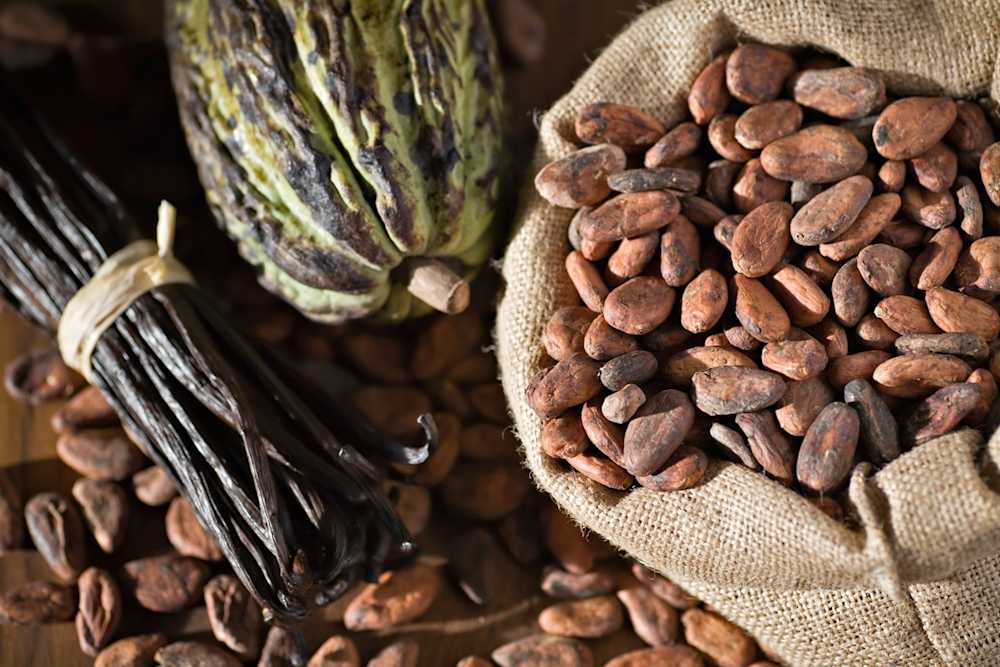Covid-19 comfort foods – who grows yours?

As I sipped another cup of badly brewed coffee in my makeshift home-office, I thought of how much I missed the fancy coffee from my local coffee shop. Covid-19 has taken its toll on such coffee-locales, and similarly, despite many of us reaching for comforting chocolate bars, cocoa demand has also dropped. After another caffeine hit, I started to wonder: what impact does this have on the farmers who are growing coffee and cocoa?
On the supply side, while breakthroughs like plant-based protein and vertical farming are making the headlines, many farmers live in poverty and receive a fraction of the final price paid for their goods. The low international coffee prices last year highlighted how many farmers cannot survive off growing coffee. Moreover, the environment is often paying the price for cheap food.
The food industry is no stranger to extreme imbalances, however. While rising incomes and a focus on healthy eating are leading to ever more niche products for the wealthy (turmeric soy latte, anyone?), 690m people still face chronic food insecurity, and Covid-19 is predicted to double the number of people facing acute hunger from 135m to 265m by the end of the year. The magnitude of this challenge was recognised by the 2020 Nobel Peace Prize being awarded to the UN World Food Programme.
Reconciling these extremes is challenging, but not impossible. For example, in Cote d’Ivoire we provided pre-harvest financing to cocoa cooperatives that source high quality cocoa, so that farmers could cover the costs incurred by production before they receive the cash from the cocoa being sold. This year, farmers are receiving a further USD 400 above market price, due to the introduction of the ‘living income differential’ by the government there.
By providing financing across the entire sustainable food supply chain, from speciality coffee processors and brands to cooperatives and organisations who supply high-quality cocoa and sustainable coffee, we help to bridge such extremes and improve rural livelihoods, strengthen value chains and promote sustainability in agriculture. We also supported the agricultural sector through our portfolio companies throughout lockdowns during Covid-19.
Covid-19 has highlighted how fragile our food system is and brought sharply into focus the basic necessity of food. In the early weeks of the pandemic, I was relieved to be part of a vegetable cooperative and have a reliable supply of local vegetables each week. I recently considered leaving it, to avoid the regular gardening commitments. But ultimately what is more important than food? Probably not having a few more hours to watch Netflix. Plus, harvesting beans in the pouring rain makes me appreciate more the work behind food from the supermarket.
Many people are facing tough economic times and have little budget to spend on fairly produced (but more expensive) food. But for those who can afford it, our food choices strongly impact those growing our food and, of course, the environment. The pandemic has demonstrated, to devasting effect, how integrated and fragile the world is. Strengthening food supply chains is necessary to keep food on the table for everyone, no matter where you live.
So do your part: have another sustainably sourced cup of coffee and don’t forget to complement it with some high-quality chocolate. It might not be a cure for Covid-19, but increased demand will help to raise farmer incomes and at the same time be a small cure for your soul in these challenging times.

Harriet Jackson
Harriet Jackson co-leads sustainable food debt investments in Africa at responsAbility. Over the past five years, she has focused on West Africa, structuring working capital and trade finance facilities across cocoa, dried fruits, and nuts value chains. Previously, she worked in climate finance, partnering with banks in Asia-Pacific and the Caucasus to launch renewable-energy and energy-efficiency lending programs. Harriet holds an MSc from HEC Paris and a BSc from the London School of Economics.